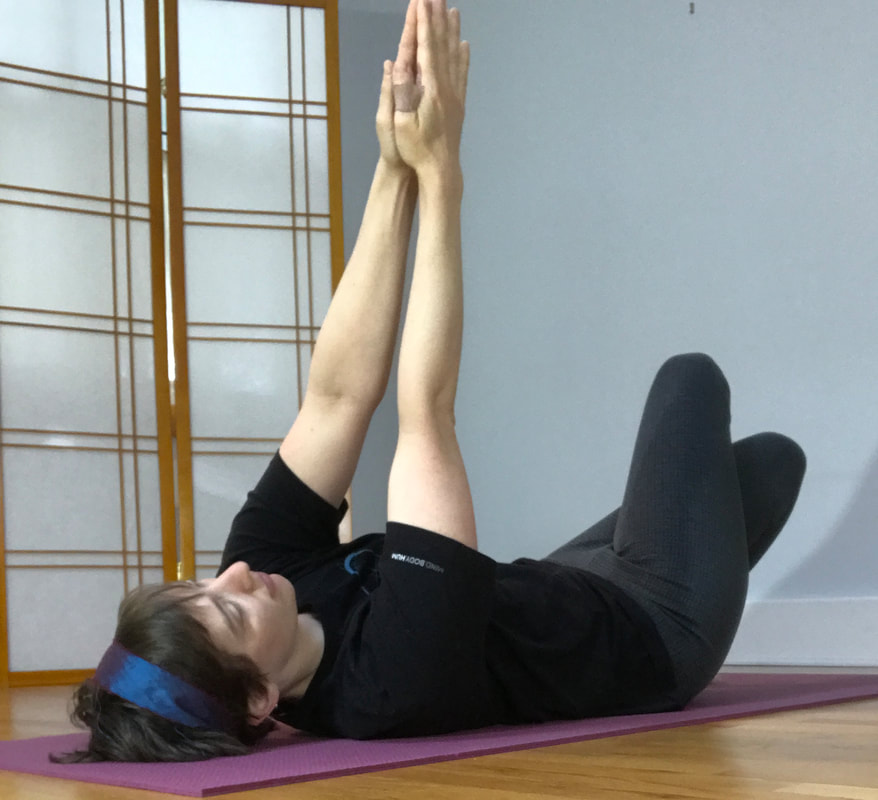|
When I taught high school, students would share their fears. Sometimes these were large fears—about being accepted; other times they were fears of tripping when going up to receive their diploma, or failing a test.
Sometimes the fear of failing was so strong, that the student would play this scenario over and over in their mind. This replaying was in fact a form of rehearsing failure, because our minds do not know the difference between imagination and reality. Imagining—especially if you do it very well—is a way of practicing. To imagine well is to incorporate sensory information. Instead of rehearsing the fear, I would ask students to imagine the scene, and imagine success. Try it: You are walking up the podium to receive your diploma. What does the auditorium smell like? How do your feet feel on the ground, and how hard is the earth? Do your footfalls make a sound? What do you see? Notice how the fluorescent lights in the gym turn everyone slightly greenish, and the echo of the voices around you reverberate due to the high ceilings, and lack of sound proofing. How fast is your heart pounding, and how do you manage the feelings of anxiety, pride, and excitement that come and go with the speed of your thoughts? Do you grasp your hands together, and are your palms cold, or sweaty? Feel your feet, notice how you hold up your gown and step each step confidently, head level. Feel your balance. See the principal holding your diploma. Feel it in your hands. Take the steps down from the podium easily. Notice your posture, your sense of well-being. This is a way of rehearsing success. I would then have the students work backwards, looking at every choice they made that got them to the point of graduation. Because part of the successful outcome is the choices they made that supported them along the way. Using sensory imagination in movement is well documented and studied. In sports, this method has been used to improve outcomes; for musicians, to improve skill and performance. As a yoga teacher, I use sensory imagination to guide somatic movements and meditation, to help students feel themselves more completely. In the Feldenkrais Method of Somatic Education®, we use imagination to sense movement, change habits, and create improvement. In fact, using the imagination can change the brain. And, ...we can use sensory imagination to clarify choices and consequences. Beyond improving action, imagining is a powerful tool for discerning whether an outcome is right for you. Sometimes it is difficult to know what you must do, rather than what others think you should do. My friend, Holly, used to say “what can you live with?” And so I’d imagine how I would feel having made first one decision and then the other. Almost always, I would instantly know which one I needed to do, and what I couldn’t or didn’t want to live with. So, imagine yourself having completed something that you want to do. Brainstorm everything about the outcome: the weather externally and internally; what you hear, feel, see, smell, know. Add to this, a process I was reminded of by Bina Venkataraman, (author of The Optimist’s Telescope: Thinking Ahead in a Reckless Age) look back as though from this place of success and answer the following questions: What steps did you take do to get here? What did you let go of, and what did you add to your life? How did you say no to things you didn’t have time for? Now that you know what it feels like to have succeeded, is this path/outcome right for you? Was the outcome worthwhile?
0 Comments
Leave a Reply. |
AuthorHeather Emanuel, is a Guild Certified Feldenkrais Method® Practitioner, Assistant Trainer, LMT, and Awareness Through Movement® facilitator. She also teaches Restorative Yoga. Free and subscription classes also are on PATREON.
As an artist, she has won accolades for her playful portraits. These days, she's pouring her creativity into her Feldenkrais work. Just as her art explores expression, playfulness, identity, and the possible, so do her movement sessions. Her art CV is here. Recorded classes on Patreon for free or a small subscription. Archives
January 2024
Categories
All
|
Heather Emanuel, GCFPSchedule Appointment
|
|


 RSS Feed
RSS Feed